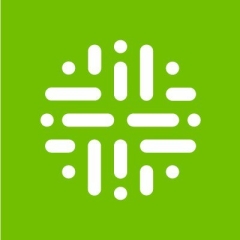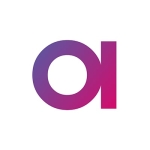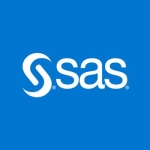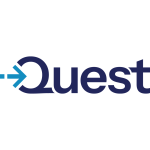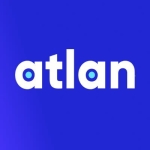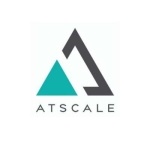What is our primary use case?
My company, a financial institution, decided to implement data governance for data analytics, et cetera. We designed an entire metadata management system using Collibra. Initially, we designed the metadata management, and then we enabled the receivership at the organization-level and also roles and responsibilities. After that, we created the lineage between the technical and business assets, and we automated the process of insertions and updates.
How has it helped my organization?
The enterprise data analytics and data science team are able to use the solution for analytics, utilizing the filtered finalized metadata from Collibra, which helps them acquire accurate details.
There's also a lot of time-saving and they're able to use appropriate data sets. We have a bunch of data sets, however, we've been able to bring and filter, and finalize the proper data sets for our users. These data sets can be used on the data mining side, where, due to the accurate datasets acquired, appropriate data is available and better results are achieved. They're much more likely now to be able to provide good input to the company based on sound data.
What is most valuable?
The data security lineage is the solution's most valuable aspect for our organization.
The product offers very good artificial intelligence capabilities.
The automation process is very strong.
The whole company can utilize the product. Once we ingest the metadata from the technical side and we enable the security, if any user wants to know anything from business asset information to which component it is been assigned where, et cetera, they can do so. They don't need to be technical or get a technician to pull the data for them.
There is a lineage, which helps us to track down and drill down on details. It helps with data analytics and data science.
Earlier we used to have a third party tool like MuleSoft for connectors. On the architecture side, they are introducing new features that allow us to phase out the third-party connector.
Collibra itself is building and providing some out of the box workflows. These features allow you to automate the process and strictly align the compliance of the company.
What needs improvement?
There are many new aspects of the solution, however, I haven't yet gone through the documentation to see if they really help solve for issues or not.
Many features have recently changed their appearance and I need to re-learn how they work.
Sometimes, if a client needs a specific customization, we cannot do it directly. The client needs to reach out to Collibra and request the customization.
The technical support is very poor.
Buyer's Guide
Collibra Governance
October 2025
Learn what your peers think about Collibra Governance. Get advice and tips from experienced pros sharing their opinions. Updated: October 2025.
871,688 professionals have used our research since 2012.
For how long have I used the solution?
I've been using the solution on a few projects now.
What do I think about the stability of the solution?
We don't have any concerns regarding stability. It doesn't crash or freeze. It doesn't have bugs or glitches. It's reliable and easy to use.
What do I think about the scalability of the solution?
The solution scales well for the most part.
Collibra, as a SaaS model, defines every functionality. What happens is that when you are trying to deploy the solution to the customer, some customers may have a lack of knowledge or, because of compliance issues, they might not like the SaaS approach. That said, if a new customer wants to deploy governance but they do not have any knowledge about governance and they've chosen the Collibra, the solution will 95% meet their expectations. Customers that are well-versed in governance will also be mostly pleased in its capabilities.
The issue is that if you are a client and you want me to customize the product in a particular way, while the solution may not allow my team to make the customization, if the client directly reaches out to Collibra, no doubt they can make it happen for the client directly.
How are customer service and support?
Technical support could use some improvements.
One of the concerns I have is the Collibra response time. For example, if you have an issue and you log the call with Collibra for support, the response from Collibra will take a long time.
For every service request of support from Collibra, the response time is slow. For each of requests, as well they say the client needs to take coaching. They recommend the user to go for coaching. They need to change that support process. The answer can't always just be "learn more".
Even with debugging issues, they respond properly. There are just a lot of problems with the way they handle calls from us.
Which solution did I use previously and why did I switch?
I have previously used different solutions. I've used, for example, Infomatica Axon. Out of all the products I've used, however, I really like Collibra.
There is another product called Alation, which is a very sophisticated product in the market of governance. Alation has more advanced features than Collibra. While it may be expensive, it might be worth the cost to get something more sophisticated. It's possible that Collibra might be updating to those more sophisticated features in the future. Cost-wise, compared to the Alation, Collibra is a cheaper product and much more economical. Also, on the web interface side, Collibra is more hands-on and it's easy for any customer to add and update.
How was the initial setup?
The initial setup is very straightforward. The Collibra product itself is pretty easy to implement and they have it designed in a way that can make the process pretty smooth. They've defined all of the processes so that they are easy step-by-step scenarios.
That said, the implementation of governance from a customer perspective is not so easy. That's not the product's fault. When we try to implement governance, a couple of stakeholders might agree, and others might not agree. There are internal differences. It depends on the customer.
With any new project, when you are launching it, you will face these roadblocks from the customer's side from time to time. From Collibra side, the product is very smooth and easy.
The deployment also depends on the customer, and therefore it can take anywhere from months to years to fully implement the process.
Typically, you need a minimum of three people to handle the deployment process. If a company's size is bigger, or their requirements are more intensive, you may need more.
Post-deployment, as well, you will need someone to handle some occasional maintenance on the product. How many individuals you may need will depend on the parameters. Governance is an ongoing process. It's not a set it and forget it scenario. Tweaks need to consistently be made.
What's my experience with pricing, setup cost, and licensing?
As a consultant, I never really get into pricing and licensing. However, comparatively speaking, I'd say that it's not as expensive as other options. It's probably about average within the industry. It's not so expensive that companies can't afford it.
What other advice do I have?
I work on governance modules. I'm not related to Collibra. I'm an external consultant and a governance consultant. We adopt any technology which is related to governance. We prepare ourselves and we'll learn it and we'll get hands-on experience so that we have a good understanding of it for our clients.
My experience with Collibra has been amazing. I've been working on Collibra within a couple of fields and my journey through Collibra was very fabulous all the way across.
I'm using the SaaS version of the solution. It ensures we're always up to date on the latest features, etc.
I'd recommend the solution to others. I'd rate it at a seven out of ten. I'd rate it higher, however, the technical support is really quite bad.
Disclosure: My company does not have a business relationship with this vendor other than being a customer.

